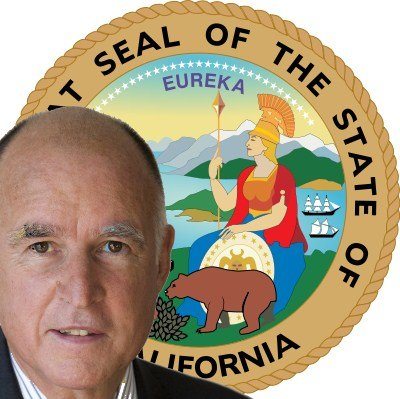

In an action that already feels like ancient history, Congress voted earlier this month to avoid the “fiscal cliff.” While much remains to be settled, the revenue side of the issue got resolved because 84 House Republicans joined 172 Democrats to support the solution negotiated between the President and the Senate. In some ways, such bipartisanship was a moment of déjà vu from a time, nearly 50 years ago, when two pivotal civil rights bills were being considered. Then, Lyndon Johnson was President and both houses of Congress were in the hands of Democrats. Martin Luther King was in the streets. The Student Nonviolent Coordinating Committee was registering voters. The 1964 Civil Rights Act and the 1965 Voting Rights Act were passed by Republicans joining Democrats to move the President’s legislation into law.
In both circumstances – today, as then – it was one party’s Southern flank that refused to go along with its leadership.
» Read more about: Great Migrations: Our Civil Rights Laws and Their Legacy »


President Obama’s inspiring inaugural address thrust a challenge upon every American: We must work to build a nation which “thrives when every person can find independence and pride in their work;” an America where “the wages of honest labor liberate families from the brink of hardship.”
Confronted by a Republican House and cautious centrist Democrats, the President can only seek progressive economic reform if the 99 Percent organize to demand it.
Fortunately, there’s no shortage of ideas around which we can organize. Here are five practical proposals for redirecting the U.S. economy toward justice, crafted by some of our wisest economic experts.
1) Increase the federal minimum wage to $9.80 per hour, as proposed by Senator Tom Harkin and Rep. George Miller. This one simple step will improve the lives of 29 million workers. Contrary to claims by the fast food chains and other low wage employers,
» Read more about: Achieving Obama’s Economic Goals: Five Steps to Take »


A few California local governments last week took a crucial step, almost unnoticed, to demand that banks pay back tens of millions of dollars which they allegedly conspired to take from the taxpayers. The City of Riverside, San Diego County, San Mateo County and five other government bodies sued almost two dozen multinational banks over the harm they allegedly caused taxpayers in the global “LIBOR” [London Interbank Offered Rate] scandal.
Notably absent from this initiative, however, are our California’s largest local governments: L.A. City and L.A. County. Equally notable is the failure of the news media, apart from specialized, business-oriented news services and blogs, to pay attention to what could be a major game changer in the 99%’s fight to make banks pay for crashing our economy.
Why should we care about something as obscure as the LIBOR financial index?
Because it set the interest rates for trillions of dollars in loans across all sectors of the global economy – ranging from your auto or home equity loan to multi-billion dollar government and corporate borrowings.
» Read more about: SoCal Governments Target Swap-Tainted Banks »


Expect scuffles between Jerry Brown and legislative Democrats over the governor’s budget blueprint.
California’s social services have certainly been cut to the bone during the recession. But Brown’s proposal for a balanced budget is a remarkable and critically important achievement which sends a message to the rest of the country:
That the bluest of all the big states can get its fiscal house in order. This was enabled, of course, by the modest tax increases in Prop. 30, passed by voters in November. Watch here as a buoyant and frisky Jerry Brown explains – in his own inimitable way – what this means.
California’s balanced budget is a repudiation of claims by conservatives that only Republican-led states can manage their books and grow their economies. Thirty states have Republican governors and all but six of them have legislative majorities, making possible all sorts of right-wing mayhem on worker,


Progressives are rarely satisfied. It is part of our political DNA. There’s so much injustice in the world, it’s sometimes hard to feel that we’re making progress. But as Chinese philosopher Laozi reminded us, a journey of a thousand miles begins with a single step.
As I document in my book, The 100 Greatest Americans of the 20th Century: A Social Justice Hall of Fame, the radical ideas of one generation are often the common sense of the next generation. One hundred years ago, ideas like Social Security, the minimum wage and women’s suffrage were considered radical. Fifty years ago, most African-Americans in the South couldn’t vote, few women were welcome in politics and many professions, and all but a handful of gays and lesbians were locked in the closet. In other words, if we take a long view, we can see that things do often change for the better,
» Read more about: Peter Dreier’s Top 25 Progressive Victories of 2012 »


Many of us felt a Capra-esque glow the morning after Election Day, happy that the Little Guy had triumphed over Big, Dark Money. And, to be honest, there was also more than a little schadenfreude to go around – what, with the spectacle of so many right-wing billionaires wasting so much money on their Cro-Magnon candidates. There’s a danger, though, in assuming their losses had taken the fight out of these tycoons – or that their lost millions somehow weakened their future political clout.
The fact is that the hundreds of millions of dollars spent on 2012 elections by the Koch brothers, Jerry Perenchio and others were little more than paper cuts to these men. They could probably recoup all their losses in a day by raising the cost of the oil they refine, or the price of plywood they sell, by an eighth of a cent. Every time you or I fill up our gas tanks or otherwise patronize one of the thousands of enterprises owned by conservative billionaires,
» Read more about: Casino Mogul Doubles Down Against Unions »


California’s second-largest city has a progressive mayor, former Democratic U.S. House member Bob Filner — who beat his Republican rival by three points in November.
The 70-year old Filner spent 20 years in Congress. A reliable and articulate liberal – with high marks on his AFL-CIO, Americans for Democratic Action and Sierra Club scorecards – he’s a founding member of the Congressional Progressive Caucus and was a Freedom Rider during the early 1960s civil rights movement, spending two months in jail for “disturbing the peace and inciting a riot.”
Among his first actions as mayor, Filner took on the powerful San Diego Gas and Electric (SDG&E), accusing the investor-owned utility of failing in its commitment to alternative energy. He has also promised to pay more attention to the city’s neighborhoods, which many residents believe have been shortchanged by civic officials who are obsessed with developments downtown and in the Gaslamp Quarter.
» Read more about: San Diego: Republican City Gets Progressive Mayor »


» Read more about: You Can’t Always Get What You Want: Post-Cliff Reactions »


We begin 2013 awaiting the House of Representatives vote on tax legislation passed by the Senate early this morning. So we’re technically off the fiscal cliff but not really about to hit the ground – yet. Below are some initial perceptions of what the legislation means, beginning with the conservative American Spectator.
» Read more about: Tax Deal: Over the Cliff or Tied to the Tracks? »


Question: What’s the difference between the European Barbarians like the Goths and Vandals (you know, the folks who looted and pillaged Europe and finished off the Western Roman Empire) and the Tea Party Politicians?
Answer: The Tea Partiers bathe more often.
Like their Iron Age counterparts, who tore up every vestige of Roman civilization they could find, seemingly just for the pleasure of doing it, their Tea Party descendants seem to take a perverse delight in obliterating all traces of the Middle Class America so carefully and painfully built since the New Deal.
And if this sounds a little puzzling, consider for a minute just who and what the Tea Party is.
Although it claims to be a “grassroots movement”, the Tea Party is basically a creature of FreedomWorks, a powerful right-wing organization headed until recently by former Texas congressman Dick Armey.
FreedomWorks itself was formed in 2004 by a merger of Citizens for a Sound Economy (CSE) and Empower America.
» Read more about: The Tea Party's Search and Destroy Operation »


Speaker Boehner’s debacle in failing to get his own caucus to support his “Plan B” is not only his failure, it shows the complete disarray of the congressional Republican Party. They are simply incapable of a coherent response to a problem that calls upon them to go beyond campaign talking points.
This gives the President and Democrats in the House and Senate an opportunity to set fiscal cliff policy, in two stages. First, before the end of 2012, they should pass a bill in the Senate that would end the Bush tax cuts for those earning over $250,000 per year, as the President promised during the campaign. The bill should also extend unemployment coverage for the long-term unemployed, extend the debt limit for at least a year, and adjust the Alternative Minimum Tax to inflation. It should suspend (not cancel) the mandatory across-the-board spending cuts in the Fiscal Cliff law.
The 52-47 Democratic majority in the Senate is ample to pass the bill;


“And it came to pass in those days, that there went out a decree from Caesar Augustus, that all the world should be taxed.”
Those are the opening lines from the Christmas story according to St. Luke, as written down by the team of scholars working under the direction of King James of England 500 years ago. Different translators have used different phrases over the centuries, but the frame for telling this story has always been taxes.
The Roman Empire wanted to make sure everyone paid their taxes, so Rome required its subjects to return to their towns of birth to sign into the national registry as part of a census, which allowed the keepers of the treasury to know who had paid and who had not. And that’s how Jesus got to be born in Bethlehem.
In California, we face a different dilemma. For decades now,


(Note: This feature first appeared September 21, 2012.)
On September 14 the Web exploded with news that billionaire industrialists Charles and David Koch had donated $4 million in support of Proposition 32. A San Francisco Chronicle editorial noting the donation labeled the brothers “conservative ideologues” – a moniker often applied to the Kochs. This description, however, gives the Kochs far too much credit for their supposed philosophical purity—particularly as it relates to the Prop. 32 battle.
Despite their reputations as libertarian true believers, the Koch brothers are nothing if not practical businessmen, who have no trouble taking advantage of government subsidies when it bolsters their bottom line. (Koch Industries, for instance, was for years heavily invested in the $6 billion, federally subsidized ethanol industry.) That bottom line runs up and down the state of California, where Koch Industries has hundreds of millions of dollars invested through its subsidiary Georgia-Pacific—a gypsum,
» Read more about: Classic Koch: How Prop. 32 Could Enrich Two Billionaires »


President Obama must remember the message of election night and back away from cutting Social Security benefits.
That didn’t last nearly as long as I had hoped. I put on my Obama baseball cap – the one I picked up from a street vendor walking to the inauguration four years ago – a few weeks before the November election. I’ve worn it every day since, to both celebrate his victory and cheer on the president for keeping to a progressive promise in the fiscal negotiations. Part of that promise was telling the Des Moines Register that Social Security benefits should not be cut. But it looks like my cap is going back on the shelf if reports that Obama is willing to cut Social Security benefits prove to be true.
There are three things to keep in mind about the president agreeing to cuts in Social Security benefits.


This past year saw an election cycle in which democratic voting rights were in question to a very troubling extent, despite claims by proponents of voter ID laws and limitations on early voting –however implausible–that they were concerned with the integrity of democracy. At least Californians could take some comfort in the fact that the state defied national trends and made it easier to register, not harder (or impossible) to vote.
So for me, as an Angeleno, it was both jarring and eye-opening to hear the recent debate surrounding a mail-in election on new taxes to pay for a streetcar loop in downtown Los Angeles. I say jarring and eye-opening because some of the arguments combined a modern confusion with a very, very old prejudice about democracy. It was a reminder that we should never assume democratic principles are secure and beyond doubt.
A little background is in order.


It was the centerpiece of the president’s re-election campaign. Every time Republicans complained about trillion-dollar deficits, he and other Democrats would talk jobs.
That’s what Americans care about—jobs with good wages.
And that’s part of why Obama and the Democrats were victorious on Election Day.
It seems forever ago, but it’s worth recalling that President Obama won re-election by more than four million votes, a million more than George W. Bush when he was re-elected—and an Electoral College majority of 332 to Romney’s 206, again larger than Bush’s electoral majority over Kerry in 2004 (286 to 251). The Democratic caucus in the Senate now has 55 members (up from 53), and Republicans have eight fewer seats in the House than before.
So why, exactly, is Washington back to obsessing about budget deficits? Why is almost all the news coming out of our nation’s capital about whether the Democrats or Republicans have the best plan to reduce the budget deficit?
» Read more about: Congress: Create Jobs Instead of Cutting Debt »


» Read more about: "We Didn't Vote to Cut Medicare and Social Security!" »


It seems appropriate that after Michigan Governor Rick Snyder (R) shepherded through the state House and Senate the right-wing extremist and corporate CEO backed “right to work” for less legislation—that he had long-called “too divisive to pursue”—without any public input, that he would sign the measure in secret Tuesday.
With as many as 15,000 people swarming the state Capitol in Lansing denouncing Snyder and the legislature for bowing to the likes of the Koch brothers, Grover Norquist, the American Legislative Exchange Council (ALEC) and the extremes of the Republican Party, Snyder retreated behind closed doors to sign the legislation and, only after the fact, announced his signature. Here are some details of the legislation that, if it follows the pattern of “right to work” laws in other states, will lower the standard of living for Michigan workers.
» Read more about: Facts About Michigan's New Anti-Union Law »


On the day North Korea launched a missile this week, the virulently anti-labor website Union Facts splashed a banner on its home page that likened union membership to living in North Korea. This was December 11, when a lame-duck legislature turned Michigan into a right-to-work state — banning unions from collecting fees or dues from workers as a prerequisite for working in unionized shops. (In a shrewdly divisive ploy, Republican bill-sponsors exempted police and firefighter unions from the law.)
In this week’s tightly scripted political theater, Lansing’s two legislative houses raced through their synchronized movements as though the capitol were afire. Later, hitting his marks on cue, Governor Rick Snyder emerged from the wings to sign this coup d’etat into law. (To think, only a few months ago the New York Times was giving Snyder the Profiles in Courage treatment, portraying him as that mythical unicorn of a politician,
» Read more about: Puppet Government: What the Michigan Vote Means »